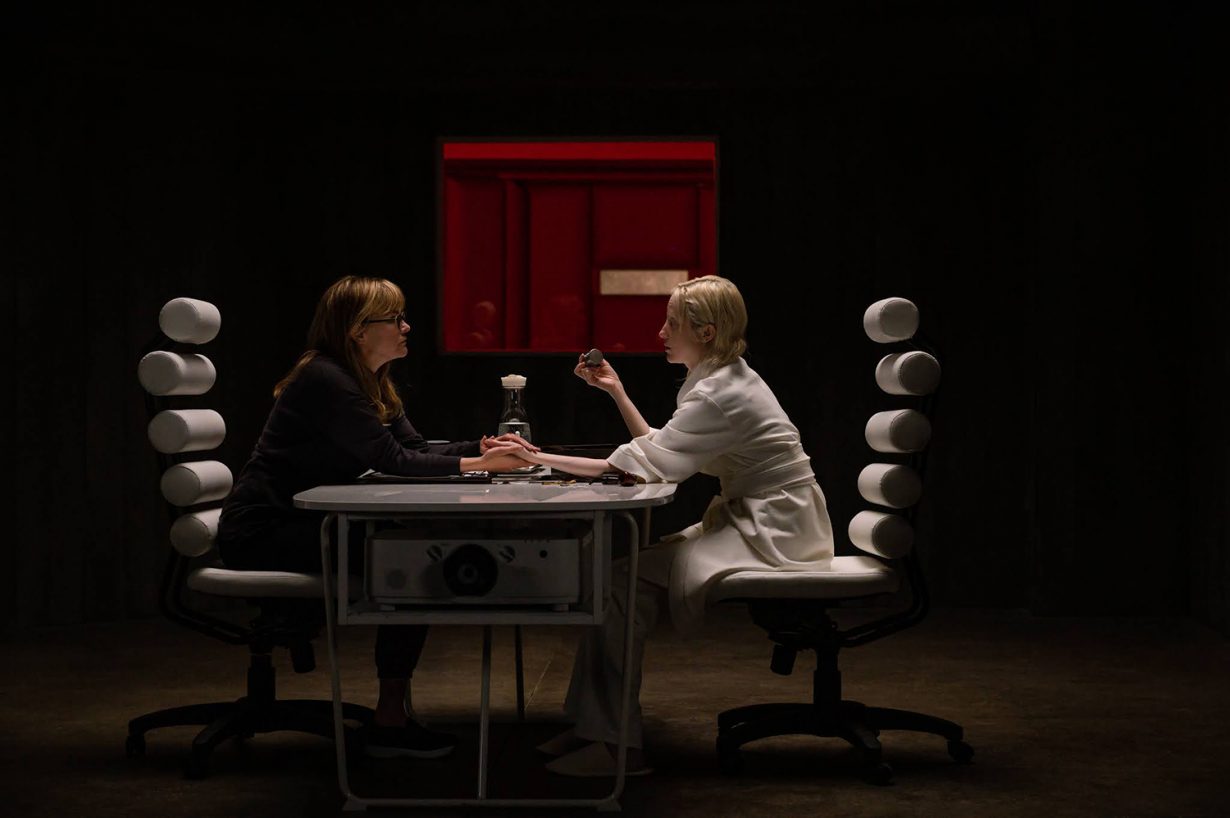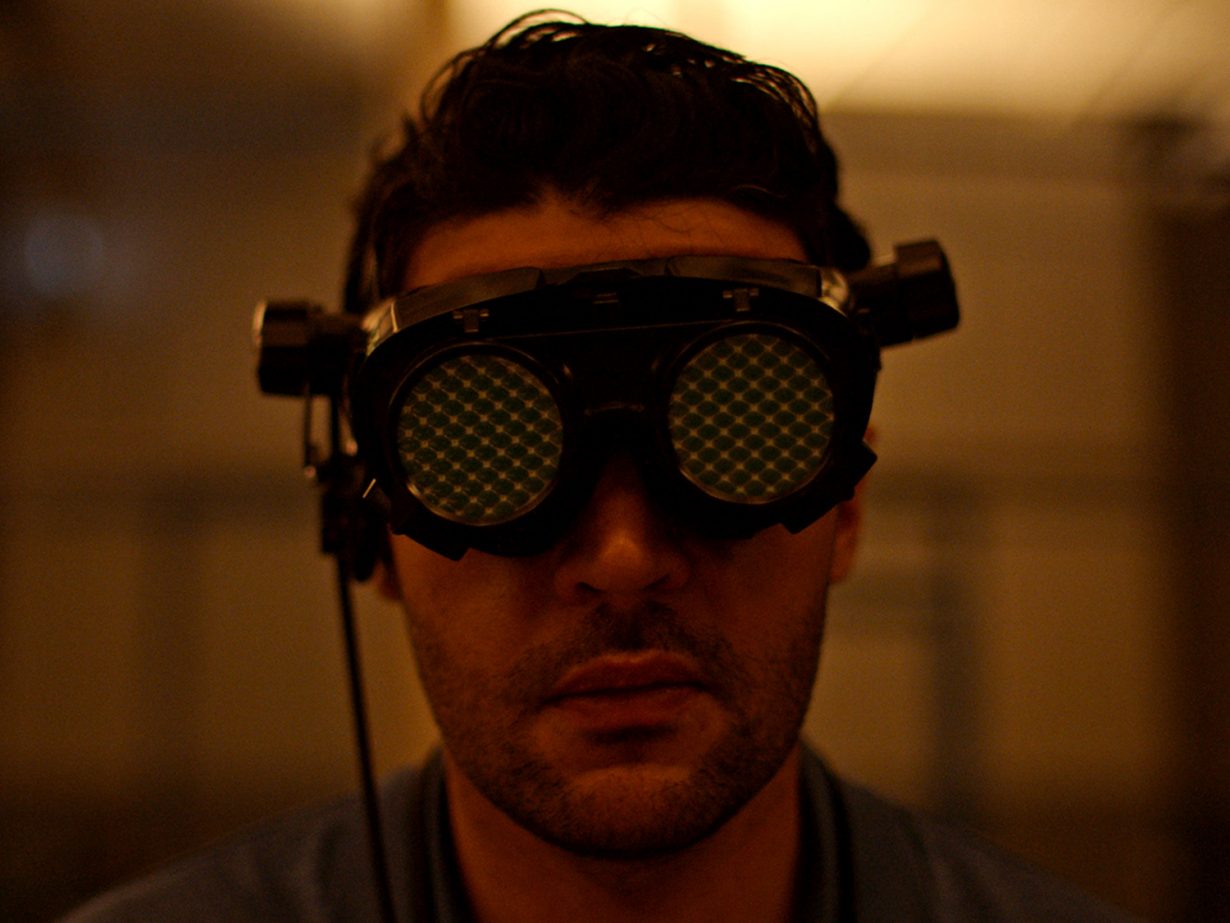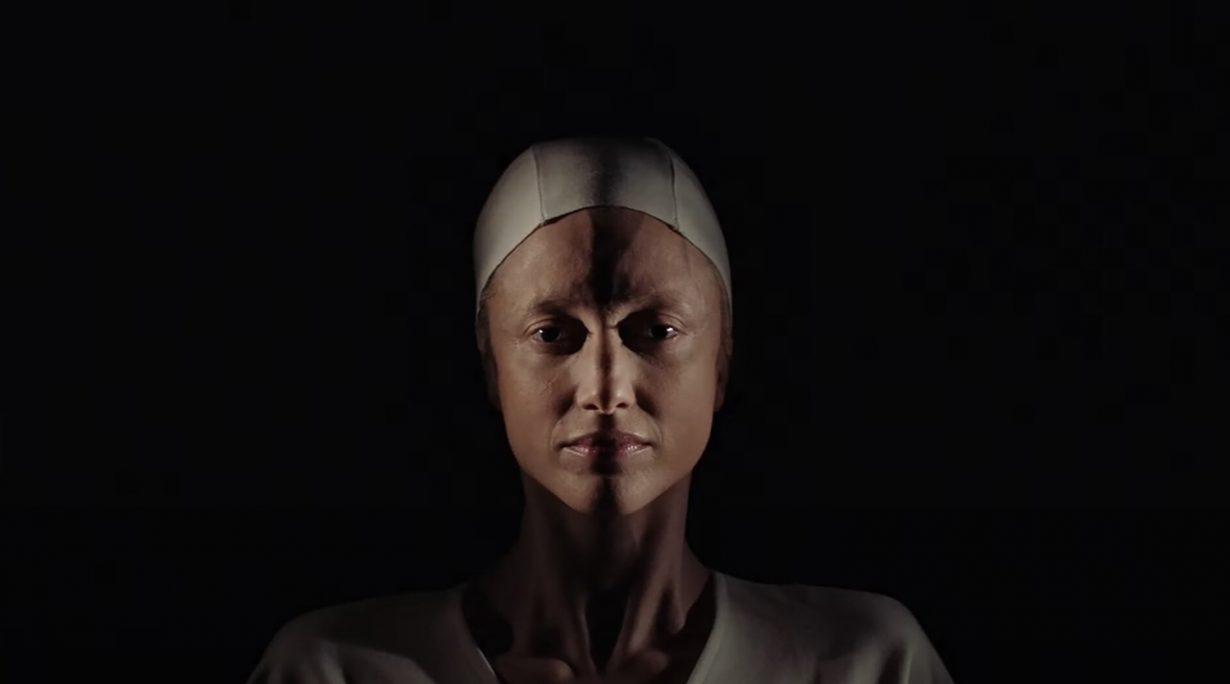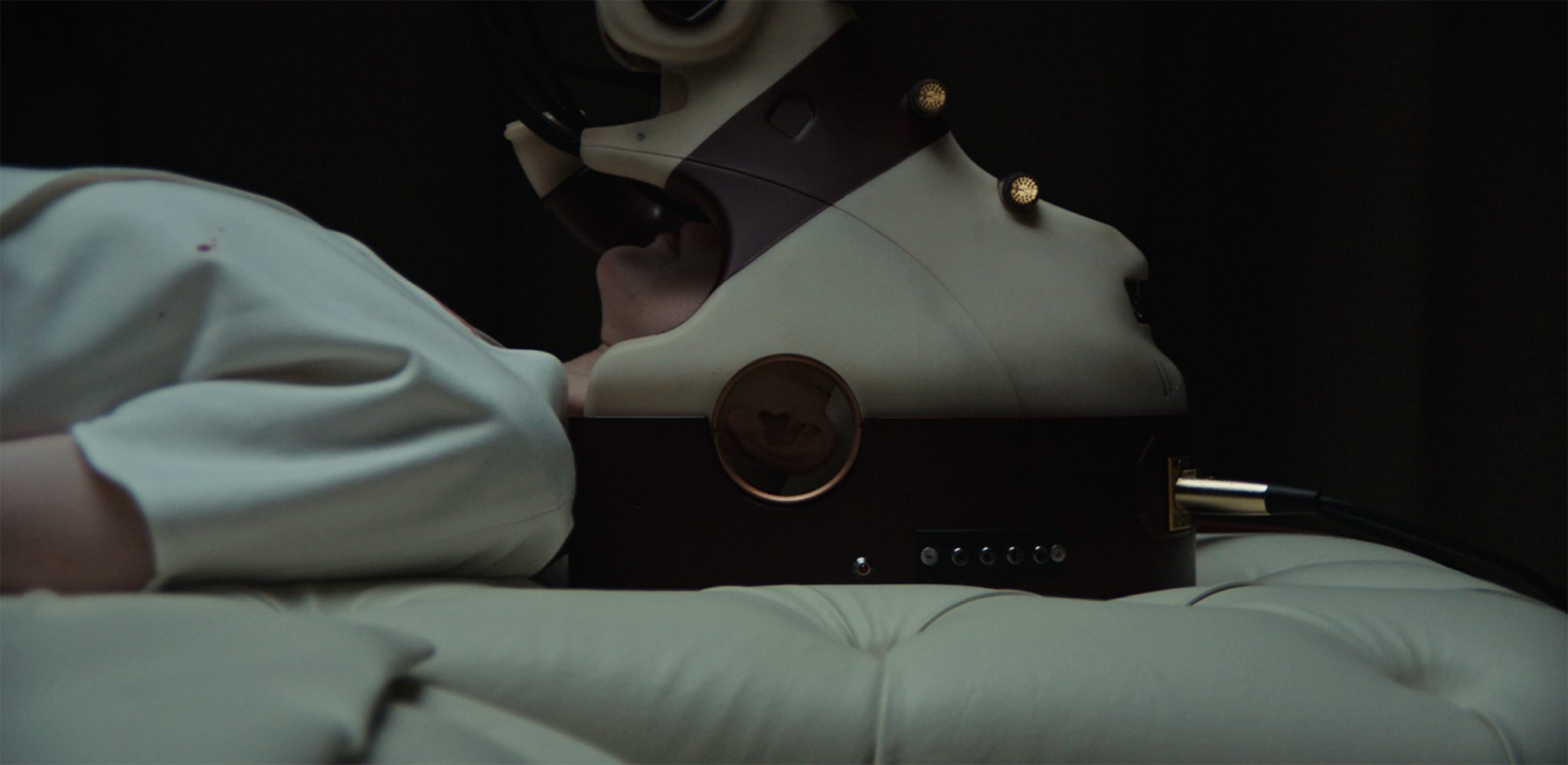A bloody sci-fi fable about for-hire bodysnatchers visualises the interior struggle between host and parasite in dazzling, merciless scenes
In Brandon Cronenberg’s first feature Antiviral (2012), celebrity is a sickness everybody wants to catch. The Lucas Clinic, whose procedures sit precisely halfway between cosmetology and epidemiology, offers its starstruck clients the pleasure of being infected with the viruses of very famous strangers. An employee of the clinic, Syd March – played by Caleb Landry Jones, resembling a cross between a sex-offender and a Pre-Raphaelite angel – has been secretly injecting himself with the leftovers in order to smuggle them out for sale on the black market.
In the first scene of the film, a curly-headed boy consults with March about the possibility of being infected with a viral strain – something minimal but permanent – from a blonde actress with a toothpaste-advert smile named Hannah Geist. “She’s somehow perfect, isn’t she?” March nods, waving his hand at a video-screen of Geist in a red dress. “Her eyes seem to reach right beneath your skin and touch your organs. Touch your stomach. Touch your lungs. Gives me the shivers.” They decide on her personal, exclusive strain of herpes simplex, on the left side of the mouth, as if the boy had kissed the actress. Cronenberg may or may not be making a sly little joke on John Updike’s iconic, oft-repeated aphorism: ‘Celebrity is a mask that eats the face.’

Actors and actresses, assuming they are talented, make their careers by getting underneath the skin of other people, squeezing up against their stomachs and their lungs, and giving audiences the shivers. In this sense, Cronenberg’s sophomore film Possessor (2020), a merciless, bloody science-fiction-horror story about for-hire bodysnatching, is a logical heir to the pitch-black satire of Hollywood fandom seen in Antiviral. What could be a better metaphor for acting, and for method acting in particular, than the ability to literally occupy another person’s mind and body?
Tasya Vos – played by Andrea Riseborough – is a dead-eyed assassin who carries out her hits while wired up to a machine that sends her reeling, sometimes glitching, into the unconscious form of whichever unfortunate person happens to have convenient access to her victim. Her boss, Girder, calls these bodily invasions her “performances,” an idea borne out by the scene in which Vos watches Colin Tate, the man she intends to slip into, and mimics him as if she is perfecting an impression: “Do you wanna go eat?” she repeats, pitching down her voice, her face an inscrutable mask. “Do you wanna go eat? Let’s just go walk and find somewhere. Let’s just go walk and find somewhere.” “It’s a real honour,” another operative tells her later, as if he were angling for a starlet’s autograph. “I was a huge fan of the Elio Mazza stabbing.”

Then again, Possessor can be read in many different ways. Because the film is about what we assume must be dizzying sums of cash being exchanged for the right to fill a stranger’s head with new and dangerous desires, we might also find ourselves able to interpret it through the lenses of war, capitalism, advertising, television, or the internet. Cronenberg himself, in a recent interview for The New York Times, suggested that it might well work as an analogy for the failings of contemporary democracy, for social media, or for ‘the way we perform for ourselves and the relationship between self-perception and performance’.
Because the film’s central hit involves Vos taking over a male body, and because while she is hidden in that body she has sex with Tate’s girlfriend, it is also very possible to read Possessor as a queer film – in its unedited form, Possessor Uncut, Vos is fleetingly depicted with an erect penis, in an erotic, hallucinatory sequence that sees both characters slipping in and out of psychic dominance. In its earliest scenes, which show a young black service worker being bodysnatched and forced to stab her rich employer, then shot by a group of cops, the film flirts with another, darker subtext, before shrinking back in horror. Some things, even for a cool provocateur like Brandon Cronenberg, are beyond satire. It is fortunate that the director – white and rich, Hollywood royalty – recognises that he has his limitations.

What else reaches right beneath your skin and brushes up against your organs? The obvious answer, circa now, would seem to be ‘coronavirus.’ Antiviral, with its vision of a world in which virologists work out of clinics on the high street, prefigured the degree to which epidemiological processes would so visibly become part of our day-to-day lives; Possessor, with its dazzlingly inventive scenes rendering the interior struggle between host and parasite as blunt, exterior violence, literalises the sensation of being driven to one’s death by something hidden in the blood or in the brain. Both films are Cronenbergian in the truest sense, which is to say that they closely resemble the films of Brandon’s father, David Cronenberg.
In describing the long effects of COVID-19 on my body in the eight months since contracting it, I have invoked Cronenberg Sr. more than once – the raised and burning veins, the sunken black eyes and grey skin, the on-and-off inability to remember loved ones’ names and simple verbs, all conspiring to convince me that I am not quite myself. That Possessor has been released in the midst of a pandemic is purely coincidental, but it does not lessen the unpleasant feeling that it and its predecessor, Antiviral, make an ideal double bill for a new era ruled by real-life body horror.

Those who thrilled to Netflix streaming Steven Soderbergh’s 2011 Contagion in mid-March, watching it hungrily until it became one of the service’s most popular offerings, will no doubt take some perverse pleasure in the possibility of seeing Possessor as another film about a virus: a dark fable in which those who survive do not do so without being changed, and those who die do so disgustingly, wetly, and viscerally. It is, whichever way you slice it, a provocative, unsettling movie – a grand Rorschach blot whose black shapes bleed into the brain. It sticks around, grim but seductive, like a cold-sore from a very famous actress.
Brandon Cronenberg, Possessor, 2020, is out now in cinemas and streaming online
